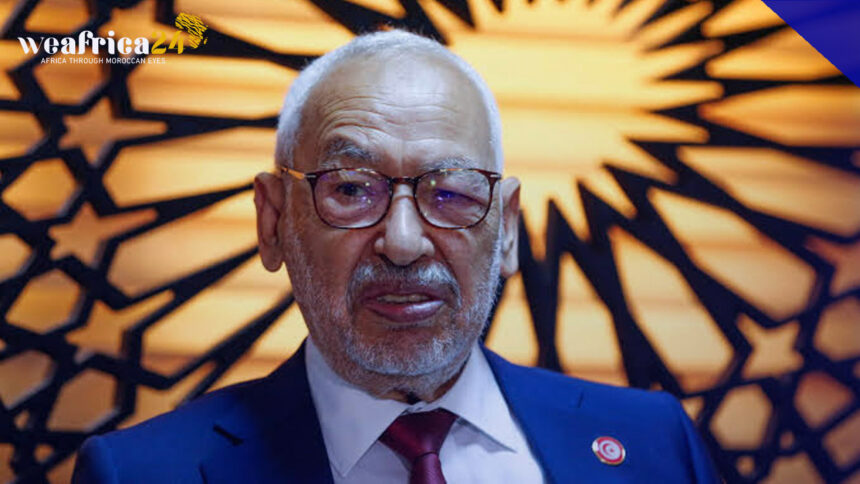Rached Ghannouchi, the veteran leader of the conservative Ennahdha party, began a three-day hunger strike on Friday, September 29th. Aged 82 and imprisoned since mid-April, Ghannouchi is using this protest to denounce the charges brought against him and other “political prisoners arrested by Kaïs Saïed,” as explained by his lawyer.
Despite being incarcerated, Rached Ghannouchi is taking a stand to protest what he perceives as politically motivated and unfounded charges against him in Tunisia. He views these charges with deep skepticism. Furthermore, the Ennahdha leader is using this hunger strike as a symbolic show of support for another political dissident, Jawhar Ben Mbarek, a member of the Tunisian left and a prominent figure in the National Salvation Front. Ben Mbarek, a vocal critic of President Kaïs Saïed, has been in detention since February and has been on a hunger strike for the past five days.
In a symbolic gesture echoing Ben Mbarek’s protest, Rached Ghannouchi has also abstained from eating for three days starting on September 29th. One of his attorneys, Me Mounia Bouali, conveyed the reasons behind Ghannouchi’s hunger strike, stating, “Mr. Rached Ghannouchi wants to make his voice heard and the voices of all political prisoners currently incarcerated in Tunisia after being arrested by Kaïs Saïed. This president has disregarded the legitimate constitution and the will of the Tunisian people who elected him in accordance with the 2014 Constitution.”
She added, “Rached Ghannouchi and otherby see no other recourse but to make their voices heard through a hunger strike. In doing so, they jeopardize their health at every moment, especially Rached Ghannouchi, who is elderly and has multiple health issues.”
In May, Rached Ghannouchi was sentenced to one year in prison for alleged endorsement of terrorism. He also faces accusations for suggesting that the country could plunge into civil war if dissenting voices were “eliminated.”
This hunger strike by the prominent opposition figure underscores the ongoing political tensions in Tunisia and the deep-seated disputes between the government and its critics, further highlighting the complex socio-political landscape of the nation.







